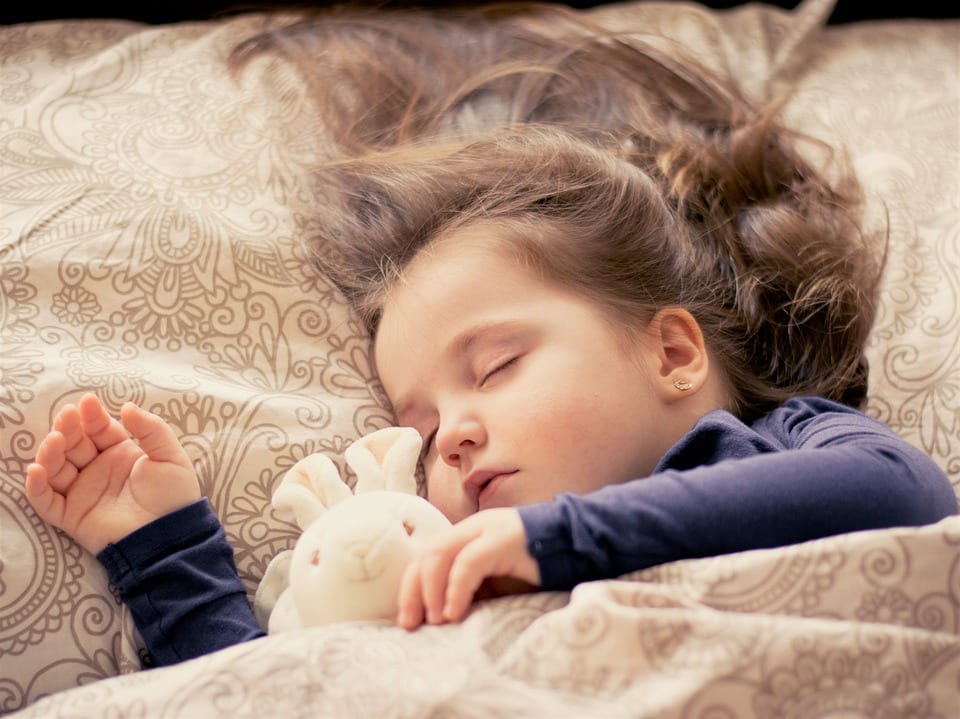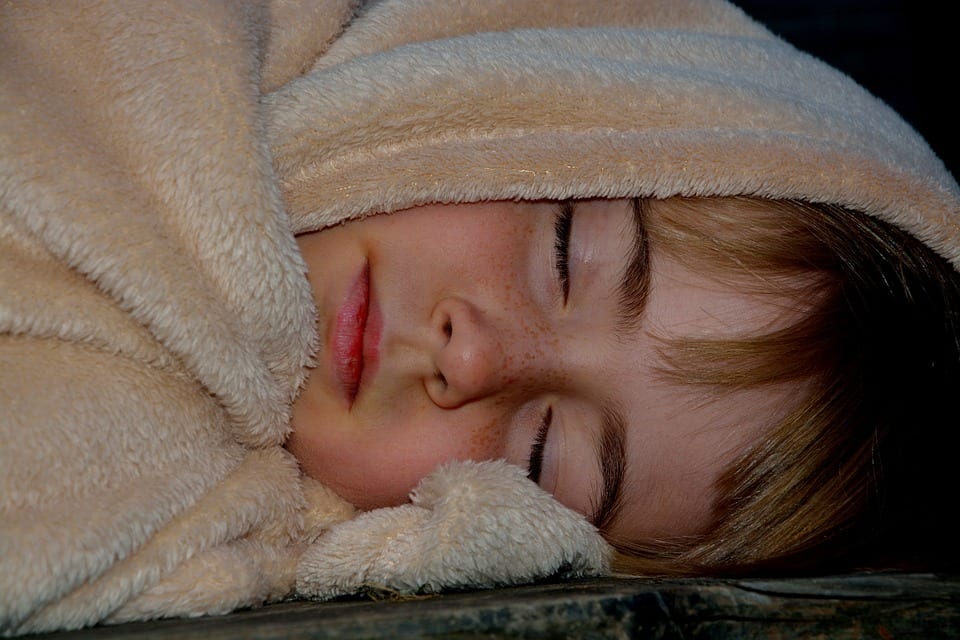Everyone has a natural sleep pattern, even babies. Some of us are night owls, others thrive in the early hours of the morning, but one thing is true across the board – we need solid, consecutive hours of sleep in order to perform our best.
And since many people find themselves on a forced 9-5 schedule because of, you know, jobs, our kids don’t have a whole lot of choice what time they get up in the morning.
So if you want them to get enough sleep, they probably need to be in bed around 7pm.

Image Credit: Pixabay
I know that probably cuts into your evening schedule, or practices, or even things like church, but listen: getting enough sleep lowers kids’ risk for future obesity, makes kids less vulnerable to illness, and primes them for better growth, academic achievement, and emotional wellbeing.
In fact, experts like Andrew J. Bernstein, a doctor and professor at Northwestern University, warn that kids with later bedtimes aren’t lucky at all, but set up to fail in many important ways.
“Children’s natural rhythm is to need to go to sleep well before adults do, and if children are kept up as late as their parents, they’re being deprived the opportunity to grow and learn as well as possible.

Image Credit: Pixabay
If your baby is under a year old, the American Academy of Pediatrics recommends they get between 12-16 hours of sleep, while kids between 1 and 2 should be snoozing between 11 and 14 hours a day. Kids who are between the ages of 3 and 5 should sleep 10-13 hours out of every 24.
These recommendations include naps.
You might be thinking, well, as long as my kid sleeps 12 hours a night, why does it matter what time they go to sleep, but, well…multiple studies have shown that it does.
Kids who go to bed earlier get more quality sleep, and evidence suggests enough good quality sleep can help prevent emotional meltdowns, childhood obesity, and other childhood issues that could have lifelong impact.

Image Credit: Pixabay
A study published in The Journal of Pediatrics followed 1,000 kids from preschool into adolescence, tracking their bedtimes and other baseline factors the entire time. They found that 39% of the kids who went to bed after 8 p.m. were overweight as teenagers, compared to only 10% of the kids with earlier bedtimes.
Additional studies have linked high BMI to kids going to bed late, and have also supported the claim that “catching up” during the day doesn’t do anything to curb the increased risk of obesity.
“Napping during the day to make up for poor nighttime sleep is just catch-up sleep and is the sign of an exhausted child. That child still suffers from the lack of good consecutive sleep at night.”
Good sleep, and plenty of it, is still important to teenagers. With it, they’re more likely to perform better in school and to display more control over their emotions, too.
And no one wants a teen in the house with bad emotional regulation…
Anyone who has ever had kids can attest to the fact that bedtime can be one of the most challenging times of the day. Babies like to be held and rocked, toddlers have a million reasons they can’t just lay down and pass out, and older kids need one more drink or one more book.
But if you can come up with a routine and stick with it – even on the nights they’re fighting you – your kids will likely be the better for hitting the sack early.






